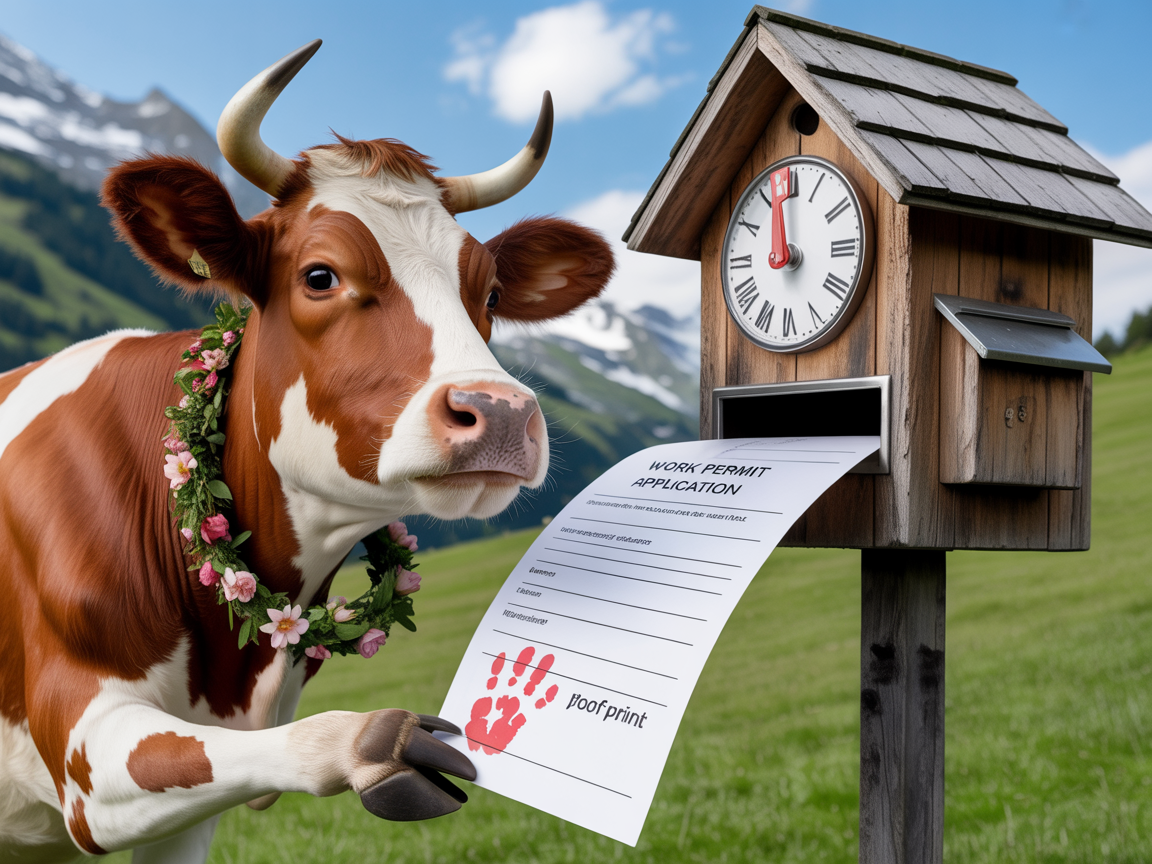For taxes Switzerland expats often find the system both intriguing and a little daunting. Switzerland is known for its quality of life, but understanding your tax obligations is key to a smooth financial experience. The Swiss tax system is unique due to its federal, cantonal, and communal structure, meaning your tax burden can vary significantly depending on where you live. This guide will help you understand the basics, including Quellensteuer Switzerland (tax at source), and how to navigate your responsibilities.
The Swiss Tax System: A Multi-Layered Approach
Switzerland is a federal republic composed of 26 cantons (states) and over 2,000 communes (municipalities). Taxes are levied at all three levels:
1. Federal Level (Bund / Confédération / Confederazione):
- Direct Federal Tax: An income tax levied on individuals. Rates are progressive but generally lower than combined cantonal/communal taxes
- Value Added Tax (VAT / MWST / TVA / IVA): A consumption tax on goods and services
- Withholding Tax (Verrechnungssteuer / Impôt anticipé): A 35% tax on Swiss-source dividends, interest from Swiss bank accounts, and lottery winnings, which can often be reclaimed by Swiss residents and those from treaty countries if income is properly declared
2. Cantonal Level (Kanton / Canton / Cantone):
- Individual Tax Laws: Each canton has its own tax laws and sets its own rates for income tax and wealth tax
- Tax Competition: This is where the biggest variations in overall tax burden occur - “tax competition” between cantons is a known feature
3. Communal/Municipal Level (Gemeinde / Commune / Comune):
- Surcharge System: Municipalities levy a surcharge (Gemeindesteuerfuss / Centimes additionnels communaux)
- Multiplier Effect: This is a multiplier applied to the basic cantonal tax
- Location Matters: Varies widely from one commune to another within the same canton
Key Point: Your tax domicile (your official place of residence) determines which cantonal and communal tax laws and rates apply to you.
Key Taxes Affecting Individuals in Switzerland
Income Tax (Einkommenssteuer / Impôt sur le revenu / Imposta sul reddito)
Scope and Coverage:
- Levied at: Federal, cantonal, and communal levels
- Worldwide Income: Swiss residents are generally taxed on their worldwide income, including:
- Salary, bonuses, and other employment benefits (including benefits in kind)
- Income from self-employment
- Investment income (dividends, interest)
- Pensions from Swiss and foreign sources
- Imputed rental value of owner-occupied property (Eigenmietwert)
Progressive Tax Structure:
- Increasing Rates: Tax rates increase as income increases
- Federal Rates: Generally lower than cantonal/communal combined rates
- Cantonal Variation: Significant differences between cantons
Common Deductions:
- Work-related expenses (e.g., travel to work, meals if not subsidized by employer)
- Pension contributions to Pillar 2 (occupational) and Pillar 3a (private, tax-privileged)
- Childcare costs (up to certain limits)
- Health insurance premiums (a limited amount is deductible)
- Interest paid on debts (e.g., mortgages, private loans)
- Donations to recognized Swiss charities
Pension Planning Tip: For Pillar 3a options, understanding your choices can be beneficial for tax planning. Resources like Expat Savvy (expat-savvy.ch) may offer insights into pension products.
Wealth Tax (Vermögenssteuer / Impôt sur la fortune / Imposta sulla sostanza)
Key Characteristics:
- Levied by: Cantons and communes (not at the federal level)
- Assessment Date: Based on your worldwide net assets as of December 31st each year
- Tax-Free Thresholds: Most cantons offer exemptions up to certain amounts
Taxable Wealth Includes:
- Real estate (Swiss and foreign)
- Bank balances and securities
- Valuable collections
- Vehicles
- Minus proven debts (e.g., mortgages)
Tax Rates:
- Generally low: Often a small fraction of a percent of net wealth
- Cantonal variation: Rates vary significantly by canton
Tax at Source (Quellensteuer Switzerland / Impôt à la source)
Who It Applies To:
This is a key aspect for many taxes Switzerland expats need to understand:
- Permit Requirements: Primarily applies to foreign workers who do not hold a C permit (settlement permit)
- Typical Permits: Those on L permits (short-term) or B permits (initial residence)
How It Works:
- Monthly Deduction: Tax is deducted directly from your gross salary by your Swiss employer each month
- Direct Payment: Remitted to the tax authorities by employer
- Comprehensive Coverage: Generally covers federal, cantonal, and communal income taxes
Rate Determination:
Rates vary by:
- Canton of employment
- Marital status
- Number of children
- Spouse’s employment status
- Church membership (where applicable)
Ordinary Tax Assessment (NOV - nachträgliche ordentliche Veranlagung):
Mandatory NOV Triggers:
- Income Threshold: Gross annual employment income exceeds CHF 120,000 (federal threshold)
- Other Income: Significant worldwide income or wealth not subject to Quellensteuer
- Full Tax Return: Must file complete Swiss tax return the following year
- Credit System: Quellensteuer already paid is credited against final tax liability
Voluntary NOV Option:
- Below Threshold: Even under CHF 120,000, you might request ordinary assessment
- Potential Benefits: If you believe you could claim more deductions than Quellensteuer accounts for
- Ongoing Obligation: Once you opt for NOV, you usually continue filing returns in subsequent years
Important: If NOV does not apply, Quellensteuer is generally considered final for employment income.
Value Added Tax (VAT / Mehrwertsteuer / TVA / IVA)
Current Rates (2025):
- Standard Rate: 8.1% (included in most goods and services prices)
- Reduced Rate: 2.6% (essential goods: food, water, books, medicines)
- Accommodation Rate: 3.8% (hotel and accommodation services)
Inheritance and Gift Tax
Structure:
- Cantonal Level: Levied by cantons (except Canton Schwyz has no such tax)
- No Federal Tax: Federal government does not levy inheritance/gift taxes
Family Exemptions:
- Spouse Transfers: Generally tax-free in all cantons
- Direct Descendants: Transfers to children usually tax-free in most cantons
- Rate Variation: Significant differences by canton and relationship to deceased/donor
Other Potential Taxes
Church Tax (Kirchensteuer / Impôt ecclésiastique):
- Membership-Based: For registered members of official national churches
- Collection: Often collected with cantonal taxes
- Opt-Out: Can officially leave church to avoid this tax
Dog Tax (Hundesteuer):
- Annual Tax: Cantonal/communal tax for dog owners
- Location-Based: Rates vary by location
Property Tax (Liegenschaftssteuer / Impôt foncier):
- Some Cantons: Annual tax on real estate ownership
- Variable: Not all cantons/communes levy this tax
The Tax Year and Filing Your Swiss Tax Return
Tax Year Structure:
- Calendar Year: January 1 to December 31
- Annual Filing: Returns filed in following year
Who Needs to File?
Mandatory Filing:
- Swiss citizens and foreign nationals with C permit (settlement permit)
- High Earners: Foreign nationals with B or L permit who meet NOV criteria (e.g., income > CHF 120,000)
- Complex Finances: Anyone with significant assets or income not taxed at source
Deadlines and Process:
Standard Deadline:
- Due Date: Usually March 31st of the year following the tax year
- Example: 2024 tax return due by March 31, 2025
Extensions:
- Request-Based: Extensions usually possible upon request
- Cantonal Variation: Deadlines and extension policies vary by canton
Filing Methods:
- Forms: Provided by cantonal tax authority
- Digital Options: Most cantons offer software or online portals
- Electronic Submission: Increasingly available
Maximizing Your Deductions: What Can You Claim?
Understanding eligible deductions is key to optimizing your tax situation:
Work-Related Expenses:
- Transport costs to/from work
- Meal expenses (when not subsidized)
- Professional development and training
- Work equipment and supplies
Retirement Contributions:
- Pillar 2 (occupational pension) contributions
- Pillar 3a (private pension) contributions - significant tax benefits
Family-Related Deductions:
- Childcare costs (up to cantonal limits)
- Child allowances and support payments
- Alimony payments
Health and Insurance:
- Health insurance premiums (standard, limited amount)
- Medical expenses not covered by insurance (above threshold)
Property and Debt:
- Mortgage interest payments
- Private debt interest
- Property maintenance (for owner-occupied homes)
Charitable Giving:
- Donations to recognized Swiss charities
- Limits apply based on income percentage
International Aspects: Double Taxation and US Expats
Double Taxation Agreements (DTAs):
- Extensive Network: Switzerland has DTAs with over 100 countries
- Prevent Double Taxation: Avoid being taxed on same income in two countries
- Treaty Benefits: May provide reduced withholding rates or exemptions
US Expats Special Considerations:
- Worldwide Taxation: US citizens taxed on worldwide income regardless of residence
- Filing Requirements: Must file US tax returns annually
- Mitigation Tools: US-Switzerland DTA and Foreign Earned Income Exclusion help reduce double taxation
- FATCA Compliance: Swiss banks report on US person accounts
US Expat Warning: Filing requirements remain even with tax treaties - professional advice essential.
Tips for Expats Navigating Taxes Switzerland Expats
1. Understand Your Tax Status
- Determine: Will you be taxed at source (Quellensteuer) or file ordinary returns?
- Income Thresholds: Know the CHF 120,000 NOV trigger
- Permit Type: Understand how your permit affects your obligations
2. Keep Meticulous Records
- Organize: All documents related to income, expenses, assets, debts
- Throughout the Year: Don’t wait until tax season
- Digital Copies: Maintain both physical and digital records
3. Be Aware of Cantonal Differences
- Location Choice: Tax rates can be a significant factor in choosing where to live
- Research: Compare cantonal and communal tax rates
- Balance: Consider tax rates vs. quality of life factors
4. Plan for Pillar 3a
- Tax Benefits: Contributions are tax-deductible
- Retirement Planning: Popular way to save for retirement while reducing current taxes
- Options: Explore with banks or insurance providers
Financial Planning: Expat Savvy (expat-savvy.ch) may offer insights into how Pillar 3a fits into overall financial planning.
5. Seek Professional Advice
- When to Consult: Complex situations (international assets, self-employment, high income)
- Qualified Advisors: Swiss tax advisor (Treuhänder / Expert-comptable fiscal)
- Cost vs. Benefit: Professional fees often save more than they cost
6. Utilize Resources
- Online Platforms: ReloFinder.ch for information and connections
- Relocation Services: Companies like Prime Relocation offer tax briefings
- Professional Networks: Connect with trusted tax experts through relocation services
Conclusion: Making Sense of Your Swiss Tax Obligations
The Swiss tax system, while decentralized, is generally predictable and fair. For taxes Switzerland expats will find that understanding their obligations, whether through Quellensteuer Switzerland or an ordinary tax return, and making use of available deductions can lead to efficient tax management.
Key Takeaways:
- Three-Level System: Federal, cantonal, and communal taxes create complexity but also opportunities
- Permit Status Matters: Your residence permit affects how you’re taxed
- Location Impact: Where you live significantly affects your tax burden
- Deductions Available: Many opportunities to reduce taxable income
- Professional Help: Complex situations benefit from expert guidance
Don’t hesitate to seek professional guidance to ensure compliance and optimize your tax situation, allowing you to focus on enjoying your life in Switzerland.
FAQ: Swiss Taxes for Expats
Q1: Are Swiss taxes generally high or low compared to other countries?
A: This is complex and depends heavily on your canton and commune of residence. Overall, the total tax burden in Switzerland (especially for high earners and considering wealth tax) can be competitive compared to many other high-tax Western European countries or North America. Some cantons (like Zug or Schwyz) are known for very low taxes, while others may be higher.
Q2: What is “Eigenmietwert” and how does it affect my taxes if I own a home in Switzerland?
A: Eigenmietwert (imputed rental value) is a notional income that homeowners are deemed to earn from living in their own property. This amount is added to their taxable income. However, they can deduct mortgage interest and certain maintenance costs, which often offset or exceed the imputed rental value.
Q3: Can I get a refund if too much Quellensteuer Switzerland was deducted?
A: Yes, in several scenarios:
- Mandatory NOV: If required to file an ordinary return (income > CHF 120,000), Quellensteuer is credited and you may get a refund
- Voluntary NOV: You can request ordinary assessment if you believe you’ve overpaid due to unclaimed deductions
- Tariff Correction: Some cantons allow Quellensteuer tariff corrections for ongoing overpayments
Q4: Do I have to pay church tax in Switzerland?
A: Only if you are officially registered as a member of one of the national churches (typically Protestant Reformed, Roman Catholic, or Christian Catholic/Old Catholic). Church tax is collected by the state in most cantons. You can officially leave the church to avoid this tax.
Q5: Where can I find official information about taxes in my specific canton?
A: The official website of your cantonal tax administration is the best source:
- German-speaking: Kantonale Steuerverwaltung
- French-speaking: Administration cantonale des impôts
- Italian-speaking: Amministrazione cantonale delle contribuzioni
They provide tax laws, forms, calculators, and contact information specific to your canton.
Q6: What happens if I move between cantons during the tax year?
A: You’ll typically need to file partial tax returns in both cantons, prorated based on the time spent in each location. The exact process varies by canton, so contact both tax administrations for guidance.
Q7: How do I know if I need to file a Swiss tax return?
A: You need to file if you:
- Hold a C permit (settlement permit)
- Are a Swiss citizen
- Have income > CHF 120,000 on a B or L permit
- Have significant non-employment income or assets
- Request voluntary ordinary assessment (NOV)
Disclaimer: Tax laws are complex and subject to change. This information is for general guidance only and does not constitute tax advice. Always consult with a qualified Swiss tax advisor for advice tailored to your individual financial situation and canton of residence.





